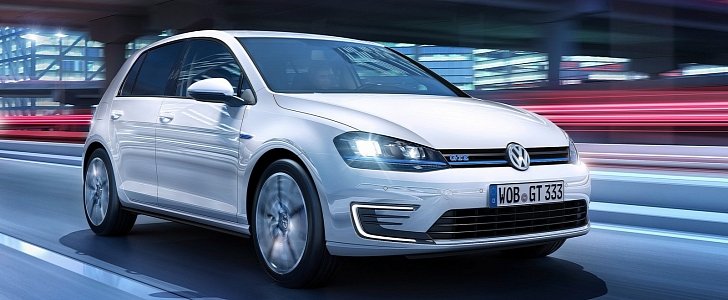Volkswagen is apparently betting big on hybrid technology with the next Golf, and as much sense as it would make, it’s not because of the Dieselgate scandal.
Developing new technologies takes a lot of time, and since the new Golf Mk VIII is expected to be with us in less than two years' time, it’s hard to believe Volkswagen is starting from scratch now.
If everything certain insiders are saying turns out to be true, the new powertrain sounds very interesting indeed, with excellent fuel efficiency and a more than decent maximum power, especially when you think it’s obtained from a three-cylinder 1.0-liter engine.
The engine is already in use on several Volkswagen models - including the Mk VII Golf - but in its current state, it is less than impressive. It does a decent job of moving cars up to the compact segment with its 115 hp, but it’s by no means a suitable engine for something that weighs over 1.3 tons. That’s precisely why Volkswagen is going to pair it with a 48V electric motor to turn the future Golf VIII into a mild hybrid.
The electric motor will act just like it’s supposed to, connecting to the gasoline engine’s crank pulley to assist when extra power is needed, but can just as well turn into a generator during engine braking. All the power obtained is going to be stored into a lead-acid battery - for cost cutting reasons - and used on demand to assist the engine and all the other usual purposes.
There is one that’s a little bit special, though, and is responsible for most of the extra 35 hp this hybrid system offers over the regular turbo engine. We’re talking about a small electrically driven supercharger that uses its own little motor so it can deliver the boost from as low as zero rpms.
This layout that Volkswagen is going for should make the new Golf a very cheap hybrid option, since it doesn’t use a full-sized electric motor nor expensive Li-ion batteries. That means that its price should be competitive with similarly powered diesels, while fuel economy is expected to be even better - there’s talk of real life 50 mpg (4.7 l/100 km).
If Volkswagen manages to move quickly with this new hybrid system, it could be the ticket out of the deep hole they’ve dug for themselves with the diesel emissions scheme.
If everything certain insiders are saying turns out to be true, the new powertrain sounds very interesting indeed, with excellent fuel efficiency and a more than decent maximum power, especially when you think it’s obtained from a three-cylinder 1.0-liter engine.
The engine is already in use on several Volkswagen models - including the Mk VII Golf - but in its current state, it is less than impressive. It does a decent job of moving cars up to the compact segment with its 115 hp, but it’s by no means a suitable engine for something that weighs over 1.3 tons. That’s precisely why Volkswagen is going to pair it with a 48V electric motor to turn the future Golf VIII into a mild hybrid.
The electric motor will act just like it’s supposed to, connecting to the gasoline engine’s crank pulley to assist when extra power is needed, but can just as well turn into a generator during engine braking. All the power obtained is going to be stored into a lead-acid battery - for cost cutting reasons - and used on demand to assist the engine and all the other usual purposes.
There is one that’s a little bit special, though, and is responsible for most of the extra 35 hp this hybrid system offers over the regular turbo engine. We’re talking about a small electrically driven supercharger that uses its own little motor so it can deliver the boost from as low as zero rpms.
This layout that Volkswagen is going for should make the new Golf a very cheap hybrid option, since it doesn’t use a full-sized electric motor nor expensive Li-ion batteries. That means that its price should be competitive with similarly powered diesels, while fuel economy is expected to be even better - there’s talk of real life 50 mpg (4.7 l/100 km).
If Volkswagen manages to move quickly with this new hybrid system, it could be the ticket out of the deep hole they’ve dug for themselves with the diesel emissions scheme.

